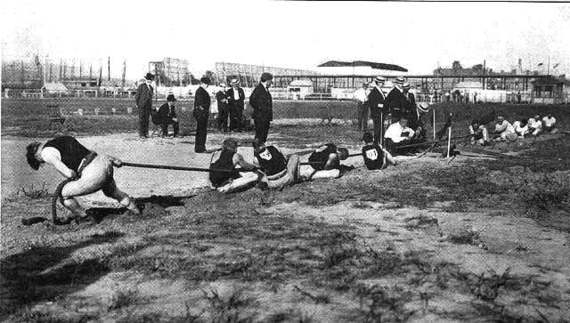It baffles me when companies hire lawyers to manhandle public relations issues. Don't get me wrong; I love lawyers -- literally. My father and both of my brothers are lawyers, as are several of my dearest friends. I also have represented attorneys for decades in all manners of PR matters. Yet sometimes I just want to give a good shake to attorneys who try to overpower PR problems with legal muscle. Two recent examples come to mind.
First, for-profit Dade Medical College has been embroiled in a PR and legal battle with the Miami Herald for the past two years. The Herald ran a series called "Higher-Ed Hustle" that chronicled how predatory practices, political dealings and low test scores are prevalent among some for-profit colleges. Dade Medical College was a regular target of these articles. (Note: Dade Medical College has no affiliation with the public Miami Dade College.)
Dade Medical College sued the newspaper for defamation, though the lawsuit was later dropped. But wait, there's more: Last week, as the college shuttered its six campuses, news broke that attorneys for Dade Medical College hired a private investigator last year to tail Herald reporter Michael Vasquez. Lawyer Juan Carlos Antorcha with the law firm Rasco Klock Perez Nieto signed an agreement with the would-be Magnum, P.I., to follow and presumably dig up dirt on Vasquez. The contract, which became public for reasons I will explain in a moment, actually had a hand-written note that said "Target: Michael Vasquez/Herald Reporter." You can't make this stuff up.
It should go without saying that hiring a private eye to trail a newspaper reporter is a bad idea. For starters, he's only one person who happens to be covering this particular story. If the college were somehow able to discredit him, then the paper would just assign someone else to cover the story. Next, any PR person with media relations experience would have told the lawyers that it is not worth the risk: What happens if you get found out?
As a PR consultant, it's my job to look at the whole communications issue and develop a strategy to solve the problem. It's also important not to make things worse. Sure, reporters sometimes mount a high horse and go after a company, but it's the job of the company's PR consultant to manage the situation and also be the one to say: "Don't hire Charlie's Angels to follow the reporter!"
Why? Murphy 's Law and/or chaos theory. My counsel to the client in this case would have simply been that these things have a way of getting out. Just as this one did.
The attorneys hired the investigator, but the client refused to pay him. The private detective then filed a small-claims lawsuit and attached the contract, with the delectable hand-written note, as an exhibit. Like magic, it was then in the public domain. All it took was a quick call or e-mail to the Herald by a clerk or interested party, and the college (just like the law firm) looked like a bully. It will be interesting to see how they try to repair the damage.
Here's the other one. Raanan Katz, a shopping center developer and minority owner of the Miami Heat professional basketball team, was engaged in a contentious battle with blogger Irina Chevaldina. While the subject of the fight was small potatoes by media standards, Chevaldina took one action that really ticked off Katz. On her blog, she published an unflattering photo of Katz courtside at a game. In the picture, Katz is looking askance and his tongue is sticking out of the side of his mouth. It has some Jabba the Hutt qualities, if you ask me.
In what I'm sure his lawyers thought was a clever move, Katz went heavy on the legal side and secured the copyright to the photo. He then promptly sued Chevaldina for copyright infringement, intending to force the blogger to take down the photo.
The court of public opinion (and the Court of Appeals for the Eleventh Circuit) thought otherwise. Free speech groups came to Chevaldina's defense, and a number of reporters were notified. When the court ruled in the blogger's favor, news spread fast and so did the picture, which has now been republished by dozens of news sites. The image that Katz clearly dislikes has now reached a far greater audience than if he had not made the argument public through legal filings. And once again, the client and the lawyers look like bullies. (If you want to see the photo, Google "Raanan Katz." I have no desire to pile on - at least not any further.)
If given a chance to offer counsel to Katz and his attorneys in advance of the copyright maneuver, many PR consultants would have warned of the "Streisand Effect": a phenomenon in which negative content gets amplified when the subject gets too heavy-handed with a response. That the "Jabba" photo reached new heights is no surprise to those of us who have experience managing online reputation issues.
The lesson is that legal solutions don't necessarily solve public relations problems. And heavy-handed tactics seem to have a way of backfiring.

